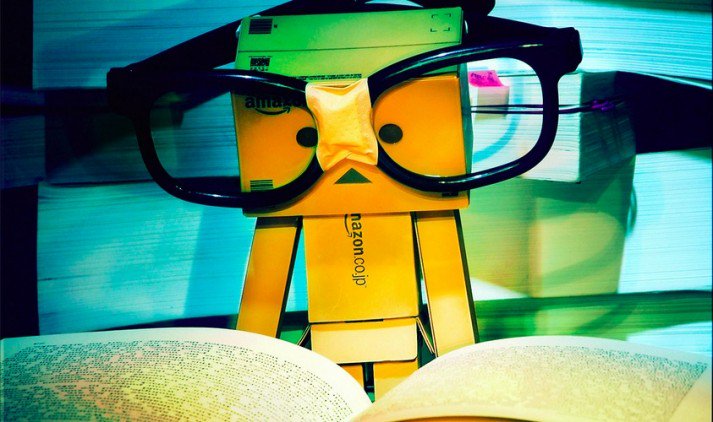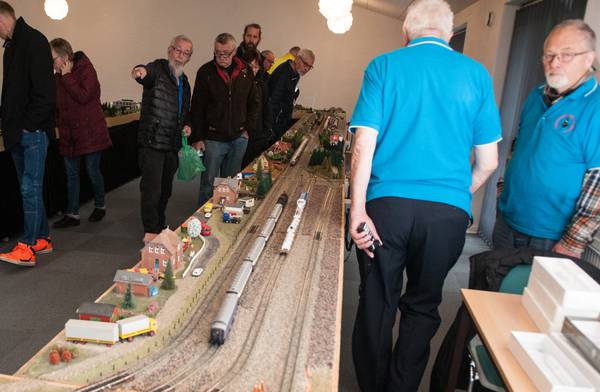The loss of innocence
Well, what is your hobby then? people were asked decades ago.
Duh, I play golf, they replied.
Or: I collect half-rusted cake tins from the interwar period.
Or also: I like to rummage under my Opel Kadett 1963 … vintage car you know!
You could even score on it: Whats’up, do you want to come up and see my rare collection of kissing guramis and other funny fish? … You know what, then I’ll fix us a drink to go home on 😉

The hobby was usually you asked the man about, and it was mostly what he did in his garage so he could get rid of his wife all Saturday afternoon. Or where she would well get rid of the sight of him = total win-win. Maybe he had a secret society with a couple of other men in their 50s in Charlies basement – Charlie had plenty of space and no wife – and played with artful model train tracks in alpine landscapes. Charlie was even retired, which was a bit of a cheat, because now he could also play with trains in daytime on Wednesdays.

Yes, I collect stamps and ashtrays. Or I walk around my house garden and grow tulips and tagetes. On the other hand, had they said: Yes, I grow kilos of vegetables in my 500 m2 greenhouse and sell them on the street, because I am an unemployed plumber … or since I am a pensioner who cannot live on the national pension, YAARG! freeze, do not call it a hobby, because it is productive and meaningful!
There it was again, the crack, the defect in the surface work. And déja-vue. It normally happens, when there’s a glitch in the matrix. A black cat walks past the door twice.

Define hobby
- A hobby is an expression invented in condescending indulgence towards the useless but harmless pastime that mainly men spend outside of working hours in the industrial society. The purpose of a hobby was to compensate for the mindless routine work one had to deliver from Monday morning to Friday afternoon. And Saturday too before the 1960’ies.
- If women knitted and crocheted, it was called domestic work, even when they were not making money from it. Perhaps precisely because it was not paid work but thereby caused a fully functional family and a production that saved almost as much money on the budget as the man dragged home by paid work. The feminists put an end to this, so that the woman could also become the obedient wage slave of the State and companies – and the children could be exposed to state-educated educators from the age of one.
- Hobbies were often unproductive, or the products were something that could in no way threaten the business life of the industrial society. If it just came close, it was immediately renamed undeclared work, harming the welfare state, and then the society came and punished it through taxation.
- When it came to playing sports as maintaining one’s physique, it was rarely called a hobby.
- However, one could not get away with saying: yes my hobby is drinking canned beer and watching football all day in a tracksuit. Nor could one say: Yes, my wife and I like to go on holiday in Dorset and at Costa del Sol. Holidays for themselves, work for themselves, leisure and hobbies for themselves. In the industrial society, all spheres of human life had been mapped. You could not say: Yes, I take may holiday while I work and work when I have a holiday.
The hobby concept was not just a fluffy thing.
It was a strictly reserved area.

Nonsense
OK, you can hear that. The concept of hobby makes very little sense today as a genre genre from the 20th century that makes one smile. Is it classified as a hobby when I spend some of my summer vacation cleaning up my workshop, whitewashing my peeling house, painting my parched wood, mowing my wild hedge and in late summer harvesting my apples, pears, cherries, plums and walnuts, before they rot? Is not that what it is: maintenance of my house so that it does not fall into disrepair + grateful use of the resources that belong to the place? Is my greenhouse full of tomatoes, chillies, cucumbers, peppers, grapes, oregano, basil, sage and thyme a hobby? Hell no, it’s housekeeping!
Would it be on the hobby level if I spent extra energy on making my garden look like a gold medal in botanical garden art for individuals (it does not)? Possibly, but again what is it in its essence other than love of beauty in all its imperfection. Even if the aesthetic is bad taste, who is the judge on that? Is it style purity compared to a historical taste trend? I personally think that hedges cut in the shape of floor vases and ducks are ridiculous, because it is snobbery in the style of French palace style and black lacquered roof tiles to signal status, which by the way is a completely different social psychological phenomenon than hobby.

We know that it is frowned upon by the State and companies when people become too skilled at household so that it resembles self-sufficiency. Their converging interest is the people’s deep dependence on them, and self-sufficiency and self empowerment are too difficult to tax. It is just around the corner that the State will declare it criminal activity, and they are already well on their way. For the same reason, urbanization, centralization, and metropolisation are solely in the interest of the two-headed beast, for cluttered people isolated from the possibility of self-sufficiency will always be deeply dependent on the logistics of the city.

Hobbies were considered by the two-headed beast – and let’s just give the beast its real name: the globalized fascist state – to be beneficial to the extent that these pursuits were pressure-equalizing, compensating, diversionary, regenerative, non-productive, and harmless. Yes, I have this hobby with a couple of my friends, where we study how the State pulls the ass of the citizens … NO, it is not a hobby, because it is not safe for the State!
How about asking a millennial or a school child: Wazzup little friend / young man, what is your hobby, computer games, Instagram-Twitter-Facebook? No, the fun and cozy hobbies of the last millennium, which people themselves invented, have meanwhile been replaced by designer lifestyle items, which are meant to be downloaded as ready-made packages and turned on. The design is boundless and equally invasive in work, study and leisure contexts, and the purpose is at least redefined in relation to the industrial society. Now, for the consumer, it is primarily about two things: to kill the enormous boredom and meaninglessness that has crept in and to signal social belonging to the hipster-baboon herd. Socializing valium.

In the industrial society’s concept of hobby, the attitude of the opinion makers / observers = the global fascist state’s behaviorist spin doctor was: By all means, let the children do their stuff, we’ll own them again next Monday morning at. working hours, where in the meantime they have done ridiculous, indifferent and for us harmless things. Besides they are pumped for energy, so they have to throw themselves on the couch and stare at the ridiculous, indifferent and for us harmless TV that we have made for them. They supplement this themselves with their inevitable biological behavior in the form of eating, shitting and sleeping … and fucking if they can otherwise. In addition, a hobby was just a diversion of aggression, so they did not begin to think about a world order that was not built up as an update of the Roman slave state. It was the permitted respite in the overall Human Resource Management program.

No more playing around
In the post-industrial / postmodernist society, all the screws are tightened. People’s private pursuits have lost their innocence and childishness from the last millennium. The addictive element and the dark undertone have taken over. In surveillance capitalism, EVERYTHING we do is suddenly the dead serious for the global fascist uberstate. The media tech giants are now allowing themselves what only state apparatuses in the worst totalitarian regimes have been able to afford throughout history. They do it because they can and because no one stops them. They have made sure that their potential stop blocks are as soft as jelly gum bears, so they continue the day-by-day course towards their Utopia = our Dystopia.

They make sure, or at least they try, to prevent the unintended event from the industrial society in the form of: Yes, he has made his hobby his job and started his own successful business … will not be likely anymore. So when a person put so much passion and actual work into his hobby, that he became as skilled as a master craftsman, after which he took the plunge and said goodbye to the wage and became self-employed and perhaps even an employer for others. Which then gave him new problems in the control state that suffocates start-ups and small business with time-consuming bureaucracy, rules and control fees.
Den samme slags begrebs-devaluering fandt sted af gamle udtryk som amatør og diletant. Amatør – amato = jeg elsker. Diletant – dilecto = jeg holder af. Oprindeligt var det anerkendende betegnelser for den sande elsker af kunst. Hvorvidt vedkommende var det, vi i dag ville kalde professionel, var underordnet. En professionel musiker i dag burde derfor skamme sig over at tale nedsættende om de skide amatører, for vil det med andre ord sige, at han ikke elsker sin kunst og bare udøver den for penge?
The self-empowerment / self-reinforcement by doing what one is best at and with success as a result will no longer take place, they say. In the future, according to utopians, people will do it and ONLY what they are programmed for. The element of play in the form of what were called hobbies will have disappeared, according to them. Play is dangerous because it contains the ultimate potential for learning, according to them. From here, the electrochemical response of the body / mind in the form of endorphins, etc., which are continuously and quite naturally triggered in the playful process, will be replaced by a controllable stimulus response, according to them. According to them, there will be chemical, genetic and electronic implants for the purpose.
They have stolen the innocence and the playfulness.
No more hobbyness.
Play cannot be learned – play can be unlearned

What is play?
Play is man’s natural way of learning and creating.
Modification of the headline: PLAY CAN LEARN
Is it human to play?
It is first and foremost natural, then human.
All nature heals. Try playing with an animal and you know it.
Isn’t it a waste of time to play?
Nature never wastes time.
There is only the dynamic moment that we call momentum.
So what if the game is not good anymore?
You say it yourself. An element of coercion and involuntariness has arisen.
You can hear it yourself: Play goddamn, or I’ll shoot your head off!
Is play not unproductive?
Play is pre-productive and reproductive, before and after.
All production in the business is based on someone playing at home in their workshop.
Isn’t play the same as childish nonsense?
Take a look at the child then. It will with deep seriousness and always without irony.
A child does not play with his own play. Its laughter is the release of joy.
So why do we play?
We do so because we can not let go unless someone or something stops us.
We do so because from birth we are natural and thus playful beings.
So why do we stop playing?
We do this because someone did not see human nature as being in their interest.
We do this despite the fact that play only thrives in freedom, and freedom only arises through play.
What happens to us when we stop playing?
When we are no longer able to play, we die slowly.
When the movement stops and we stagnate, we become lumps of ice.
Can we completely forget to play?
A Dutchman does not say: I can’t remember it.
He says: I do not know it anymore.
You can not forget what you never knew, and you can never completely forget. Everything frozen can be thawed.
How do they go about stealing the ability to play?
They do this by sending children to a place called a school.
They do this by scheduling all the time that could be meaningful play.
What makes them want to steal children’s best abilities?
This is because they themselves lost their best abilities and therefore they are envious of other peoples abilities.
They do not consider others human because they themselves lack humanity.
So how can we motivate children to play?
You can hear it yourself?
You neither can nor should motivate. You can stop demotivating.
Are you saying that everything in Nature is play. What about dead things?
Wrong quiestion gives wrong answers. In Nature there are no dead things.
Dead things are artificialities created by humans without play.
Are you saying that a stone is a living thing?
I say that there is no matter without spirit, nor spirit without matter.
A rock is an organism that is so slow that you don’t have time to experience it.
Are you saying that a stone is capable of playing?
I say that the stone is a grain of sand at the bottom of the sea that participates in a play.
No two stones in the sea are alike, and each stone has its own history.
But the stone can’t play back, can it?
Have you tried collecting stones on the beach, putting them in a bowl and pouring water on them?
Watch them change color and play and come to life. Is it not playing?
Can you give examples of nature playing?
Crows and dolphins, waves by the beach, leaves on trees, snowflakes in the wind.
Clouds in the sky, planets and moons, myriads of filaments, people at night.
Are you saying we should never grow up and always play like little children?
I say something else.
I say we must bring with us the child whole as an adult.
Even though adults have rules, abstractions and structure, it should still be play, not a punishment.
Are you saying that it is useless to teach children anything?
You may think you are teaching the child something, but it is always the child who is learning.
If the child did not play with words, it would not learn four new words a day. If it did not learn four new words a day between 4-10, it would never get a language.
What do I do if I have forgotten what it means to play?
Then you begin to remember what it means to play again.
If you can ask that question, you have already begun to remember.
How do I rediscover playing again?
You only get good at something by doing it over and over again.
The only condition is that you have head and heart with you.
When you become a grandfather and can no longer run after the ball,
so rejoice from your rocking chair over your grandchildren who can.
If you do not think that as an adult you still own the gift of play,
so at least do not prevent others from owning it.
If you as an employer deprive your employees of all opportunity for productive play,
do not complain that they are not doing their best.
If you, as a politician, demand that schools schedule children’s last free hours,
so be prepared to take responsibility for the damage it causes and the money it costs.
If you as a parent leave your parental responsibility to the entertainment industry, the advertising industry, the porn mafia, Ronald McDonald, social media pedophilia, school system brain death, governments rules for death-safe, boring playgrounds, the vaccine industry’s mercury-aluminum components and the UN program on children and the imminent brain death of mankind, so do not grumble in advance, that:
- that they already in your lifetime end up as sociopathic brain-zombies
- that those, who survive the zombification and posthumously may want to piss on your grave because you knew in the back of your head that you knew something and therefore should have done something about it




